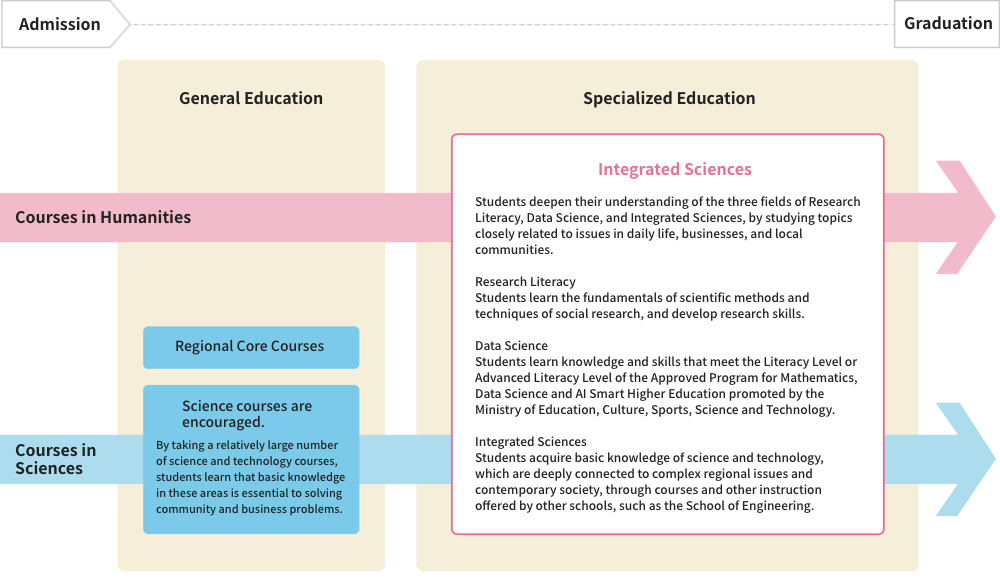Integrated Study of Humanities and Sciences
Integrated study of humanities and sciences to help students develop a scientific mindset in collaboration with organizations like the School of Engineering
The aim of integrated study of humanities and sciences at the School of Global and Community Studies is to take multiple approaches to solving complex and specific problems facing local communities today, using basic knowledge and methods of the natural sciences.
- In general education, students take a relatively large number of courses in math, science, and technology, with the understanding that basic knowledge in these areas is essential to solving community and business problems.
- Courses in the Research Literacy and Data Science fields are offered to provide scientific methods and technical foundations for analyzing and working with data to investigate problems.
- The School of Global and Community Studies collaborates with other schools, including the School of Engineering, to offer courses in the field of Integrated Sciences, which features specialized courses in natural sciences related to complex local issues, project-based learning, and other specialties.
Thus, the subject of Integrated Sciences consists of the three fields of Research Literacy, Data Science, and Integrated Sciences.
Research Literacy
Students learn the technical fundamentals of social research methods, especially qualitative research methods and data tabulation and analysis methods.
Data Science
Students learn the technical foundations for understanding and operating IT-based social systems, through the study of statistical analysis methods, computational skills, the use of AI and databases, and other knowledge and skills required to harness the vast amounts of data available in the real world.
Integrated Sciences
Students learn about issues focused around living environments, science and technology, and familiar social and economic activities, and deepen their understanding of the application of scientific knowledge to community development.

Note: Regional Core Courses refer to courses in which students systematically study regional issues.
Examples of Integrated Sciences courses offered (especially science courses)
| Research Literacy: | Regional Data Analysis, Social Research Theory, Qualitative Research Methodology |
|---|---|
| Data Science: | Introduction to Statistics, Fundamentals of Information Technology, Quantitative Data Analysis, Programming and Algorithms, Databases, AI and Data Science Theory, Mathematics for Data Science, Data Science Application Theory |
| Integrated Sciences: | Regional Planning Theory, Fundamentals of Intellectual Property, Regional Environment Theory, Introduction to Natural Resources and Energy, Introduction to Venture Business |




